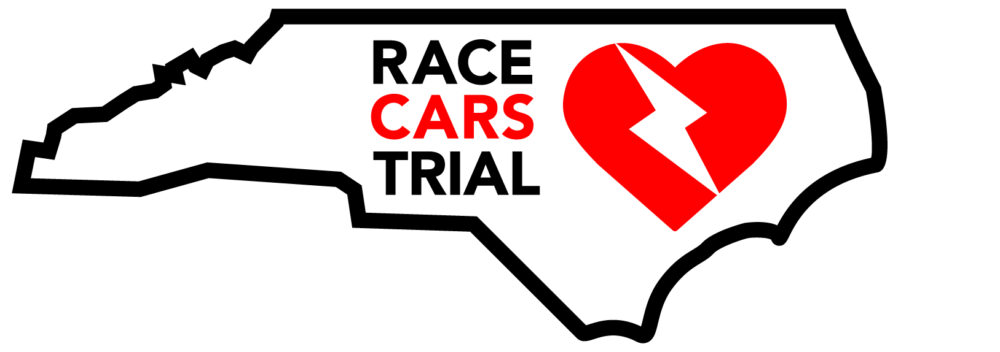Introduction to RACE CARS Trial
The RACE-CARS Trial aims to improve outcomes for out-of-hospital cardiac arrest (OHCA) victims. A cardiac arrest occurs when the heart either stops or has an irregular heartbeat. It is an electrical problem where the heart is not able to pump blood to the rest of the body. This causes the person to become unresponsive and to stop breathing normally (either no breathing or gasping). Cardiac arrest is different from a heart attack. A heart attack is a plumbing (circulation) problem. An artery becomes blocked and oxygen cannot get to the heart. If the artery is not opened quickly, the heart becomes damaged. The longer the delay in treatment, the worse the heart damage.
The trial will evaluate whether a set of customized health system and community-based interventions implemented within North Carolina counties can improve survival to hospital discharge with good neurologic function relative to usual care for OHCA patients.
The RACE-CARS Trial is led by a team of researchers at the Duke Clinical Research Institute in partnership with participating EMS agencies, hospitals, 911-dispatch, fire, rescue, law enforcement agencies, and communities throughout North Carolina. The trial will last 7 years and is funded by the National Heart, Lung, and Blood Institute.
Why the Trial is Important
10%
of Cardiac Arrest victims survive.

Cardiac arrest is one of the main causes of death in North Carolina and the United States. Death will occur within minutes if victims do not receive appropriate treatment.
As seen here, there is variation in outcomes after cardiac arrest based on where you live. Knowledge of this regional variation could guide identification of effective interventions that are used in some communities but have not been implemented in others.
There is little proof that these cardiac arrest outcomes have improved over the last 30 years. By utilizing guideline-based treatments, we hope it leads to major improvements in systematic regional approaches to emergency cardiovascular care and will increase the number of lives saved.
